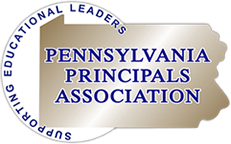Uninterrupted Scholars Act and Changes to FERPA
February 6, 2013
The PA Department of Public Welfare and PDE have issued this joint statement regarding the recently enacted Uninterrupted Scholars Act (P.L. 112-278).
On Jan. 14, 2013, the Uninterrupted Scholars Act (P.L. 112-278) was signed into law with an immediate effective date. This Act makes key revisions to the Family Educational Rights and Privacy Act (FERPA) that will make it easier for child welfare agencies to access education records.
This amendment creates a new exception under FERPA that authorizes an agency caseworker or other representative of a state or local child welfare agency, or tribal organization to have access to the student’s educational records without having to obtain parental consent or a court order. This exception applies to children for whom the public child welfare agency has legal responsibility for their care and protection, specifically those children in the legal custody of the agency who are placed in out-of-home care. This would include children placed under a voluntary placement agreement and shared case responsibility youth who have been adjudicated dependent.
It is the position of both departments that the individuals who can obtain education records under this exception, specifically those who have the right to access the child’s case plan, includes the following:
? the child’s caseworker from the public children and youth agency;
? the child’s caseworker from a private children and youth agency with whom the public agency contracts; and
? the supervisors or managers of such agencies.
In order to obtain a student’s records, proof of this relationship with the child must be provided. This proof can be in the form of a court order or written notification on agency letterhead indicating that the agency has legal custody or is otherwise legally responsible for the care and protection of the child.
The records obtained pursuant to this exception may not be re-disclosed to any other person or entity unless those individuals or entities are engaged in addressing the student’s educational needs and authorized by the child welfare agency or organization to receive such disclosures.
Child welfare agencies have a continuing obligation to work collaboratively with families and their local education agencies to address the educational needs of children in dependent care. The amendment does not usurp the right of a student’s parent to make all other decisions regarding the release of the child’s education records, nor does it place the child welfare agency in the role of parent or educational decision maker. It merely allows child welfare agencies to obtain a student’s education records in a more timely and efficient manner. As a result, the child welfare agency representative working with the family should explain to the parent and to the school entity that provides the records that, while the agency will have access to the education records, the parent still maintains the right to access the records directly from the school and the right to make decisions about the child’s education. The child welfare worker should also make all efforts to keep parents informed and involved in the child’s education.
In addition, the Uninterrupted Scholars Act also provides that, in cases where a parent is a party to a proceeding involving child abuse or neglect, or a dependency matter, and a court order is issued authorizing the disclosure of education records, additional notice need not be provided to the parent by the educational agency before educational records are released.
